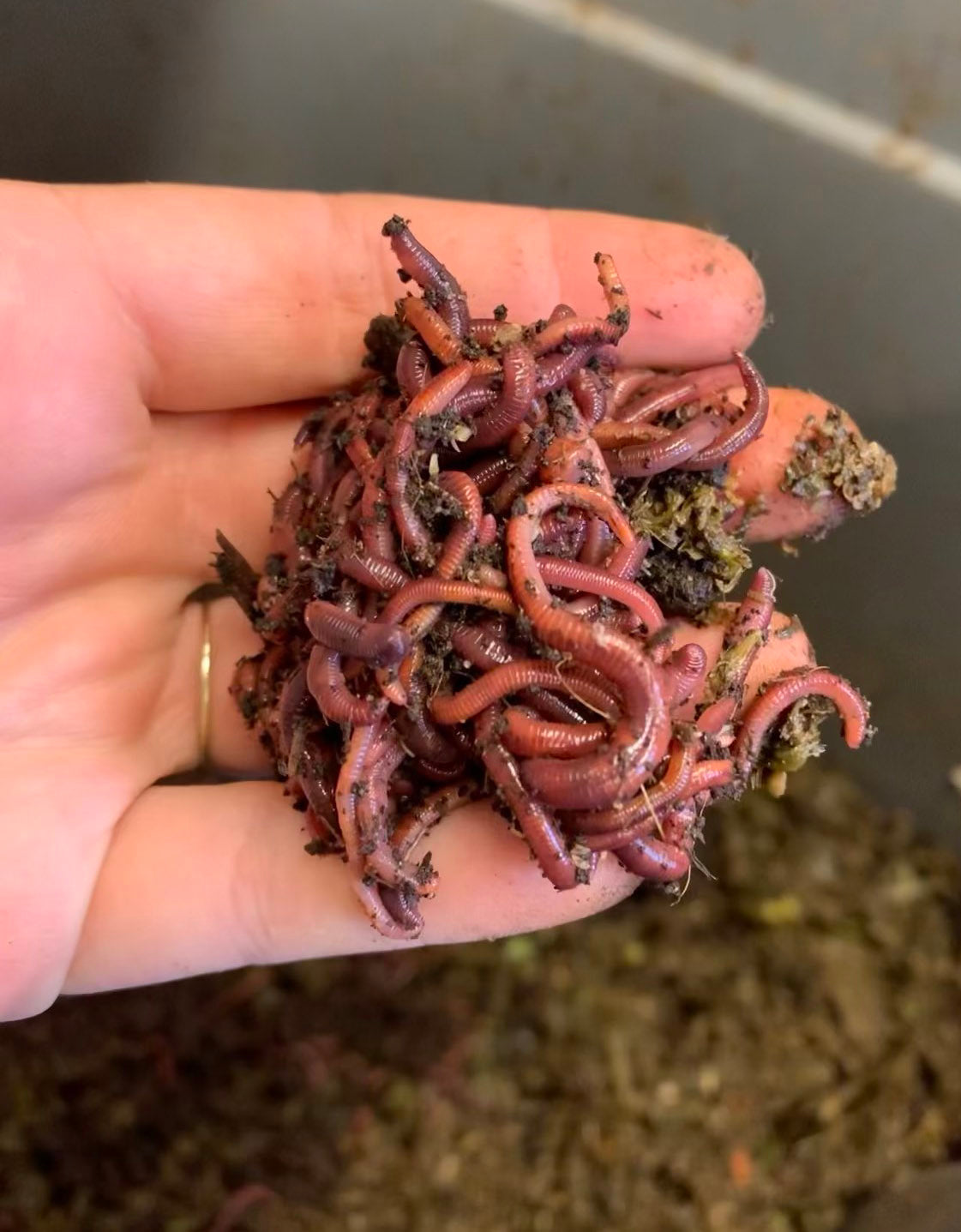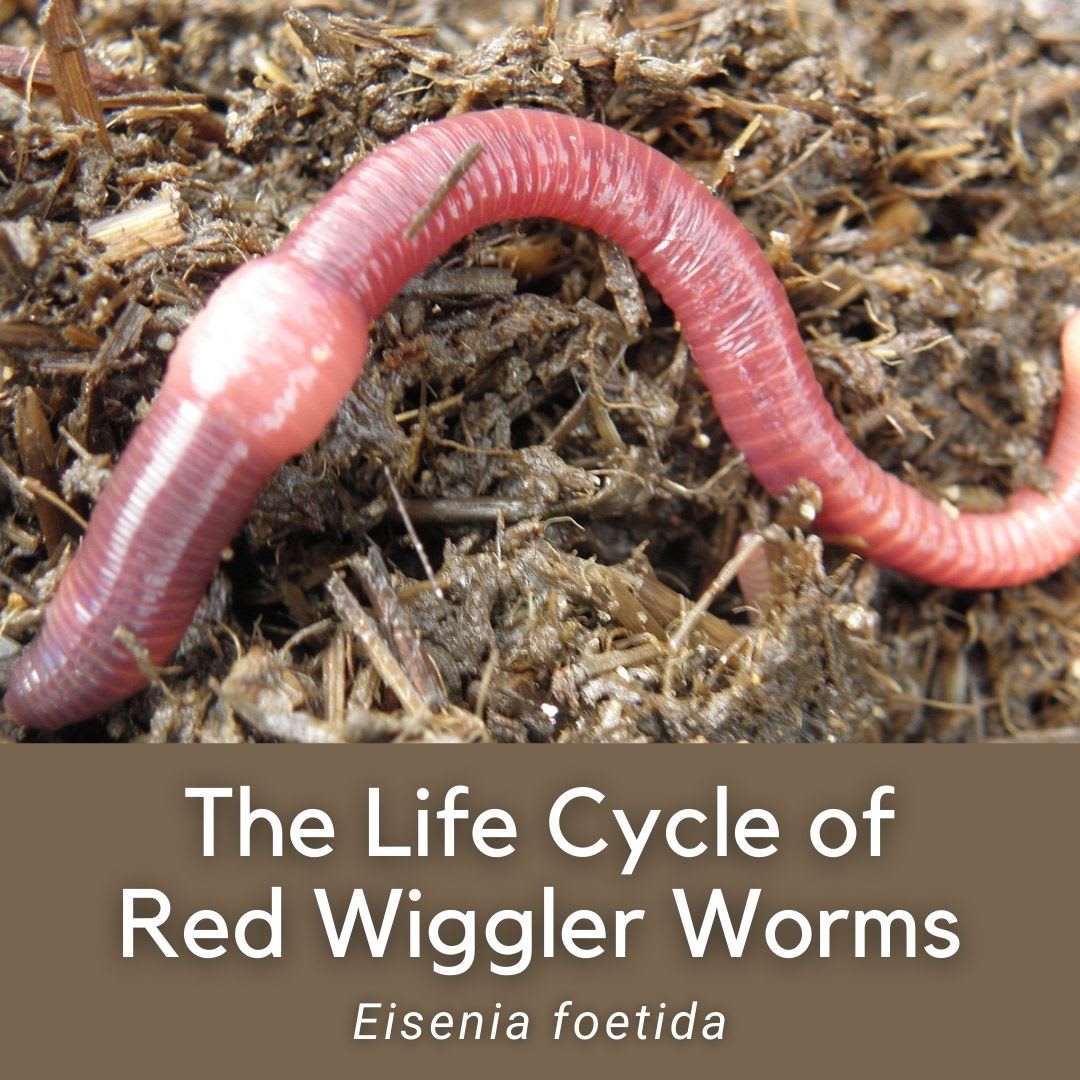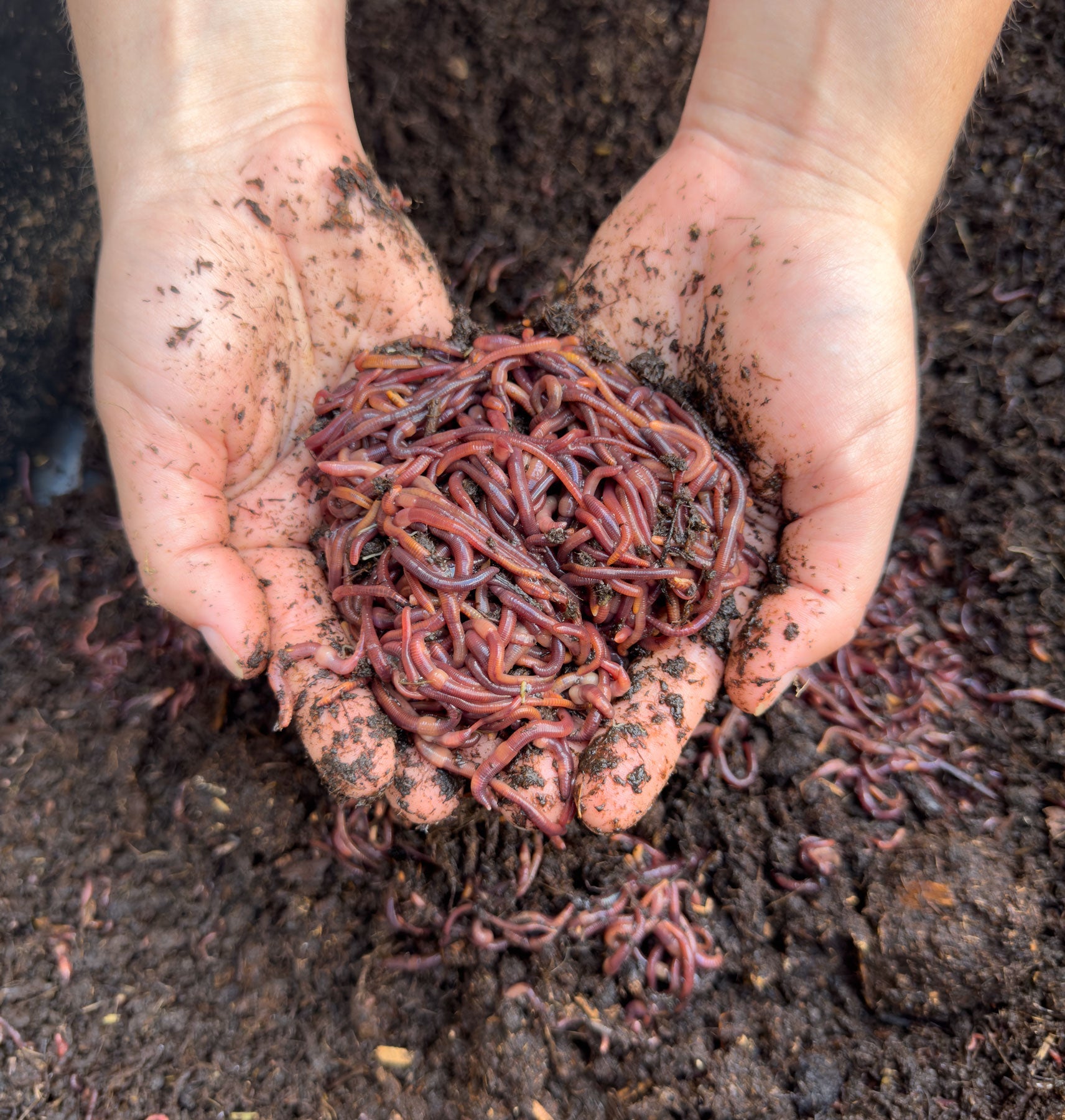Why Lake Hickory Bait Is the Best Choice for Local Fishing Supplies
Why Lake Hickory Bait Is the Best Choice for Local Fishing Supplies
Blog Article
Open the Keys of Red Wigglers: Your Guide to Composting Success
The assimilation of red wigglers into composting practices provides a considerable possibility for boosting dirt health and promoting sustainability. These organisms are not merely efficient recyclers of organic waste; they provide a myriad of advantages that can transform yard administration. Understanding their needs and actions is critical for optimizing their capacity, from establishing a proper worm container to feeding them the right materials. As we check out the crucial parts of effective vermicomposting, one might wonder exactly how these small animals can lead to a much more dynamic and productive yard ecosystem.

What Are Red Wigglers?
(Red Wiggler Express)Red wigglers, medically referred to as Eisenia fetida, are a types of earthworm mainly used in composting due to their exceptional ability to disintegrate raw material successfully. These worms are identified by their reddish-brown coloration and a fractional body, usually determining between 3 to 4 inches in length. Unlike various other earthworm varieties, red wigglers prosper in rich, organic atmospheres, making them ideal for vermicomposting systems.
Belonging To The United States And copyright, they are frequently discovered in decaying leaves and compost heap, where they play a crucial role in nutrient recycling. Their adaptation to staying in a wet, cardiovascular atmosphere enables them to eat large quantities of organic waste, breaking it down right into nutrient-rich castings that boost soil health.
Red wigglers recreate swiftly, with a solitary worm with the ability of generating a number of cocoons weekly, each having multiple hatchlings. This fast recreation price adds to their efficiency in composting procedures. They prefer temperatures between 60 ° F and 80 ° F, and their task degree raises considerably within this array, further aiding in the decay procedure. Comprehending the biology and behavior of red wigglers is important for maximizing their possibility in composting applications.
Benefits of Making Use Of Red Wigglers
Harnessing the power of red wigglers in composting supplies numerous advantages that improve soil health and promote sustainable waste administration. These remarkable organisms effectively damage down organic issue, changing kitchen scraps and yard waste into nutrient-rich vermicompost. This finished product is remarkably advantageous for plant growth, as it enhances soil structure, increases moisture retention, and enhances vitamins and mineral accessibility.

(Red Wiggler Express)Furthermore, the visibility of red wigglers in your composting system can increase the composting procedure, generating high-grade garden compost in a portion of the time contrasted to conventional methods. The spreadings created by these worms are also find this bristling with valuable bacteria that better enhance the soil environment.
Establishing Your Worm Container
Producing a reliable worm bin is a simple process that can substantially boost your composting efforts. Worm bins can be made from plastic storage containers, wood boxes, or readily available worm bins.
Next, prepare the bed linen product, which offers as the worms' habitat. A mix of shredded newspaper, cardboard, and coconut coir functions well, providing a comfortable environment for the worms.

Feeding Your Red Wigglers
To make certain the health and wellness and efficiency of your red wigglers, it is important to offer them with a well balanced diet plan that satisfies their dietary demands. Red wigglers prosper on a diverse selection of organic products, which not only provide necessary nutrients yet likewise advertise efficient composting.
Start by including kitchen scraps such as veggie peels, fruit cores, and coffee grounds. Stay clear of citrus fruits, onions, and garlic, as these can be damaging to worm health. Furthermore, introduce shredded paper, cardboard, and dry fallen leaves to develop a well-aerated environment.
Feeding regularity ought to be kept track of; usually, worms can consume half their body weight in food weekly. It is crucial to prevent overfeeding, as excess food can lead to unpleasant odors and bring in pests. A great technique is to add food in tiny quantities, enabling worms to refine it prior to introducing a lot more.
Keeping moisture degrees is additionally vital; the bed linen needs to be damp however not soaked. Be certain to routinely inspect the temperature level and pH levels of the bin to guarantee an ideal setting for your red wigglers, ultimately enhancing their composting effectiveness.
Harvesting and Using Garden Compost
A successful composting process with red wigglers culminates in the rich, dark garden compost called vermicompost, which can significantly boost dirt wellness and plant development. Gathering this nutrient-dense product usually happens every three to 6 months, depending on the size of your system and the quantity of natural matter being processed.
To collect, carefully separate the compost from the worms and any kind of undecomposed products. One efficient approach includes moving the materials of the container to one side and including fresh bed linens and food to the vacant area, encouraging the worms to move. After a couple of days, the compost can be collected from the opposite side.
It is crucial to utilize vermicompost appropriately to maximize its advantages. By integrating vermicompost right into your gardening program, you not just recycle organic waste yet also produce a growing community that sustains sustainable horticulture practices.
Verdict
In summary, red wigglers act as outstanding allies in composting initiatives, transforming organic waste right into nutrient-rich vermicompost (Red Wiggler Express). Their unique biological features and efficient waste processing capacities add considerably to lasting horticulture practices. By comprehending the optimum problems for their environment, feeding requirements, and compost harvesting methods, garden enthusiasts can boost soil health and promote plant vigor. Welcoming vermicomposting not just decreases garbage dump waste however additionally cultivates a more environmentally accountable technique to horticulture and source monitoring.
Report this page